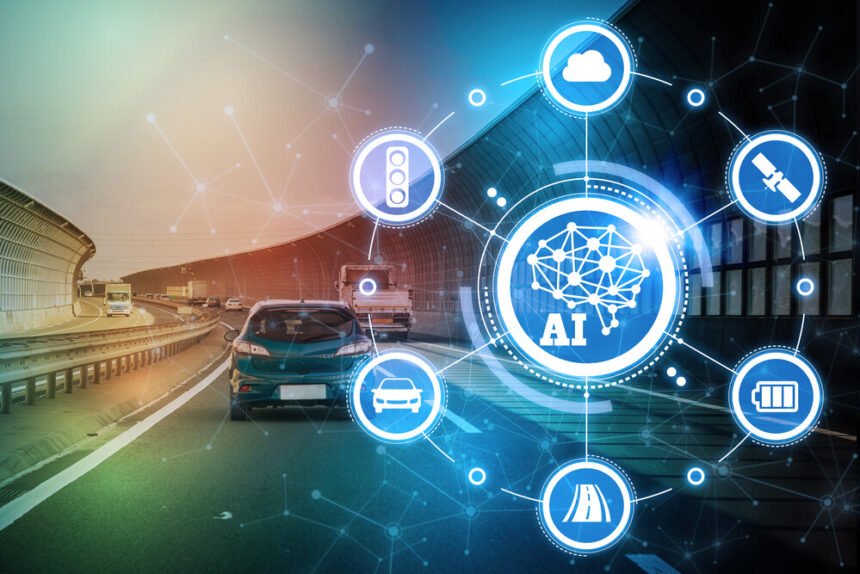Back in 2015, popular French car manufacturer Peugeot teamed up with IBM to develop new connected-car services. The idea behind this was to collect and analyze driver data to help other organizations, including retailers, car dealerships and smart cities.
IBM’s Big Data & Analytics platform, as well as their new MobileFirst suite allows Peugeot to analyze a wide range of vehicle and driver data. This allows for the team supporting this joint project to discover ways that we can power a cleaner and safer transportation experience. This data is obtained from cars, phones, lights, traffic signals and many other sources.
Using Big Data to Improve the Driver Experience
This data can be used in many ways. It can enhance road building decisions, ease traffic through smart communication and reduce pollution. It could also link vehicles to retailers and enhance the driver experience. This experience could be improved by having a vehicle that is capable of reacting in real-time to outside information – streaming connected data could enable motorists to adapt to driving conditions and avoid dangerous situations.
The Self-Driving Car Revolution is Running Head First into the Electrical Revolution
This impressive technology reflects the need for people to be connected in modern times. Peugeot has the largest number of connected cars on the roads right now. Since this is grabbing the attention of other automotive manufacturers, the number of consumer choices is likely to grow significantly in the coming years. This is could prove an interesting challenge because it is a complicated time in the automotive industry with the electric car revolution already in full swing.
Government Regulation Jumpstarts Electric Car Growth
More and more motorists are switching to electric automobiles following the government’s announcement of a proposed 2040 ban on the sale of petrol and diesel vehicles. This has accelerated the green car revolution, but there are still some that are hesitant to make the change. With so many incentives and a growing network of charging points up and down the country, along with so many excellent electric models currently on the market, it is easy to see more people making the switch sooner rather than later.
All-Electric and Big Data
So, what does the electric car revolution mean for connected vehicles? IBM’s big data can be harnessed to greatly improve the ownership experience of an electric vehicle. These automobiles are capable of producing, storing and collecting huge amounts of data, including apps on the dashboard, battery charge rates, acceleration levels, location and much more. In addition to assisting motorists with planning trips, checking tire pressure and learning the condition of the battery, this data can also be hugely valuable for those that make the cars.
The data produced by electric vehicles could inform engineers and developers in many ways. It allows people to see driving habits, the availability of charging systems and how people use their electric cars to greatly enhance efficiency. This could include managing power grid capacities, deciding where to place charging points and improving the range of vehicles on offer. This is important because it is vital that existing electrical grids be capable of support increased demand from electric cars on the road in need of a charge. This will only become more of a challenge once more people begin to make the switch.
Drivers Feel Range Anxiety with Electric Cars
One of the main hurdles that is currently holding back motorists is the supposed lack of charging points, and the perceived low range from an overnight charge at home. This is understandable, but IBM’s big data could be invaluable assuaging these fears. Engineers could determine the number of charging points and where they should be placed to better support motorists and reduce peak-time stress on any one sector of the power grid.
Flipping the Switch on Electric Means a Glut of Used Cars
The proposed 2040 ban may seem far away, but it is easy to see why many motorists are already beginning to make the switch. There are many financial incentives, growing social pressure to live green lifestyles and the improved range of newer electric vehicles entering the market.
With many existing electric card owners looking to take advantage of new tech innovations in current models, used car dealerships like Motorpoint will soon be filled with the electric vehicles of yesterday. And this new inventory will mean that more and more people can afford to participate in the electric vehicle revolution.
In conclusion, Peugeot and IBM’s partnership from a few years ago was an exciting announcement. It has brought forth huge improvements for both motorists and the industry. And with the increasing number of electric, connected vehicles on the road, it’s never been a more exciting time for big data harnessed from the vehicles on our roadways.
The enormous amount of data produced and collected by all-electric cars can be used to dramatically improve the driver experience. This will only continue as more data is produced after the remaining market shifts to all electric, connected vehicles. Big data in the automotive space is the key to making a smooth transition.

